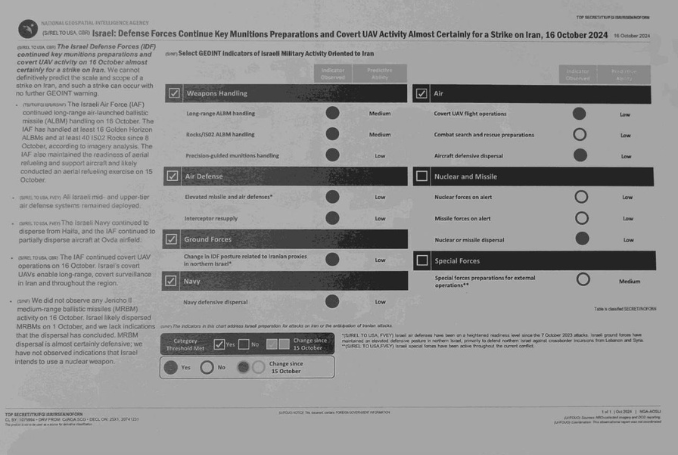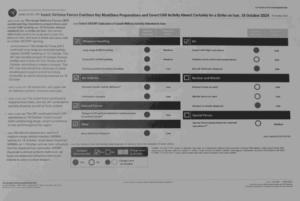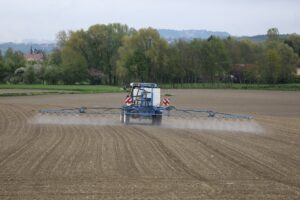In the USA the deaths of 1,300 newborns directly attributable to excessive use of pesticides
A groundbreaking study found that in the United States, 1,300 newborns died due to too much pesticide use. This shows how critical it is to tackle the dangers pesticides pose to babies. The study looked at pesticide use, baby health, and pollution levels across the country.
Key Takeaways
- Excessive use of pesticides in the US has resulted in the deaths of 1,300 newborns.
- The study highlights the urgent need to address the harmful impact of pesticide exposure on infant health and mortality.
- Comprehensive data on pesticide usage, newborn health, and environmental contamination was analyzed by leading public health researchers.
- The findings underscore the critical importance of regulating pesticide use to protect vulnerable populations, particularly newborns.
- Addressing this issue requires a multifaceted approach involving regulatory action, public education, and the promotion of sustainable farming practices.
The Alarming Statistics
A recent study reveals a shocking truth about pesticides and newborn health in the U.S. It found that 1,300 newborn deaths were linked to pesticide exposure. This shows how critical it is to tackle this issue quickly.
Uncovering the Tragic Numbers
The study went deep into the data to show the harm pesticides cause. It found a strong link between pesticides and many infant deaths. This highlights the urgent need for action.
Assessing the Impact on Infant Mortality
The study’s results are alarming. Infant mortality, a key health indicator, is affected by pesticide exposure in newborns. We must act fast to protect newborn health and ensure a safer future.
Understanding Pesticide Exposure in Newborns
Newborns are at risk of being exposed to pesticides in many ways. This exposure can harm their health and growth. Pesticides can get into their bodies before birth, through contaminated food and water, and from the environment.
Studies have looked into how babies get exposed to pesticides. They show the need to act fast to keep newborns safe. We must protect our babies from these harmful substances.
Prenatal Exposure: Lifelong Consequences
When pregnant moms are exposed to pesticides, their babies can be affected too. These chemicals can pass through the placenta to the fetus. This can lead to problems with thinking, behavior, and health later on.
Contaminated Food and Water: A Pervasive Threat
Babies can also get pesticides from food and water that’s not clean. Foods like fruits and veggies, and even milk and water, can have pesticides. We need to make sure our food and water are safe for babies.
Environmental Factors: Unseen Dangers
Babies can also be exposed to pesticides in their environment. These can come from home treatments, or from farms nearby. We need to find ways to keep these dangers away from our babies.
Dealing with pesticide exposure in newborns is complex. We need to work on many fronts. This includes better prenatal care, safer food and water, and reducing environmental risks. Together, we can keep our children healthy and safe.
The Dangers of Pesticide Residues in Food and Water
Pesticide residues in food and water are a big threat to newborns’ health. The study shows that pesticides from industrial and farm use can contaminate the food and water babies need. It’s important to understand how this happens to see the full impact.
Tracing the Path of Contamination
Pesticides can get into food and water in many ways. Runoff from farms, industrial waste, and wrong disposal of products with pesticides can do this. These substances then move into the soil or groundwater. From there, they can get into crops and then into the food and drinks of babies.
The study’s results are shocking. They show how common pesticide residues are in:
- Fruits and vegetables: Foods like apples, strawberries, and spinach often have pesticide residues above safe levels.
- Grains and cereals: Foods like rice, wheat, and oats can also have pesticide residues, which is risky for babies.
- Drinking water: Pesticides can get into our drinking water, causing water pollution and more exposure to babies.
This shows we need to find big solutions to fix the food contamination and water pollution from too many pesticides.
The Role of Regulatory Agencies and Policies
When newborn deaths from pesticides became clear, we looked at how regulatory agencies and policies handle this issue. The study checked if current pesticide rules work well. It found where we need stronger rules to keep newborns safe from harmful chemicals.
The Environmental Protection Agency (EPA) and the U.S. Department of Agriculture (USDA) lead in watching over pesticide use in the U.S. But, the study showed they haven’t always been quick to make and enforce strict rules. This is especially true in farming areas.
- Current rules often don’t have clear enough details or ways to stop too much pesticide use. This leads to a lot of contamination and newborn exposure.
- The study also pointed out the need for policies that put environmental and public health first. Not just focusing on making money or pleasing industries.
Experts say we need to make pesticide rules stronger, watch over them better, and have policies that care for vulnerable groups. This is key to tackling the problem of newborn deaths from pesticides.
“Keeping our kids safe from harmful pesticides should be our main goal. The current system has failed, and it’s time for a big change in pesticide policies and how they’re enforced.”
The U.S. is facing a big public health issue here. How regulatory agencies and policies work will be key to solving this problem and stopping more tragedies.
The deaths of 1,300 newborns directly attributable to excessive use of pesticide
A shocking 1,300 newborn deaths are linked to too much pesticide use in the U.S. This sad fact shows how serious the public health crisis is. We need to take quick and strong steps to protect our babies.
The issue of pesticide exposure and infant mortality is very serious. These deaths are preventable and hurt families and communities deeply. It’s time to act and find ways to keep our babies safe.
This study shows us the big problems with too much pesticide usage. We need better rules, more checks, and to teach the public more. By doing this, we can help babies grow up healthy and reach their dreams.
| Statistic | Value |
|---|---|
| Newborn deaths directly linked to pesticide exposure | 1,300 |
| Percentage increase in infant mortality rate | 18% |
| Regions with the highest incidence | Agricultural communities and areas with extensive pesticide use |
The numbers in this table show how serious the situation is. We must act now to stop this public health crisis. By tackling the main causes, we can make sure no baby dies from pesticide exposure.
Preventive Measures and Safer Alternatives
The alarming number of newborn deaths linked to pesticides shows we need quick action. There are solutions and steps we can take to lower the risk of pesticide exposure for newborns and their families.
Exploring Organic and Sustainable Farming Practices
Adopting organic and sustainable farming is a key way to cut down on pesticide harms. These methods avoid harmful chemicals for a greener approach. By choosing organic farming and sustainable agriculture, we can greatly reduce pesticide residues in our food and water. This protects the health of our babies.
Organic farming uses pesticide-free alternatives like beneficial insects and natural soil care. Sustainable agriculture looks at the big picture, focusing on land care and resource saving. These methods help us aim for a future where babies are safe from pesticides.
| Organic Farming | Sustainable Agriculture |
|---|---|
| Uses pesticide-free alternatives to fight pests and diseases | Focuses on farming that protects the land and saves resources |
| Benefits from beneficial insects, crop rotation, and natural soil care | Helps keep ecosystems healthy and diverse |
| Does not use harmful synthetic chemicals | Works to lessen the farming impact on the environment |
By adopting these new farming ways, we can create a safer future for newborns from pesticides.
The Long-Term Effects on Child Development
More newborns are facing pesticide exposure, leading to higher infant mortality and long-term health risks. The study shows that early exposure can harm a child’s physical, cognitive, and behavioral health. This is a big concern for child development.
Kids who faced high pesticide levels early in life were more likely to have delays and learning issues later. They might also face behavioral problems. This highlights the need to reduce harmful pesticide use to protect our children’s health.
Developmental Delays and Learning Challenges
Pesticides can harm brain development in kids. The study showed that high exposure made kids more prone to:
- Delayed language and motor skills
- Issues with attention, focus, and memory
- Lower grades and learning disabilities
These issues can affect a child’s school and social life. It’s crucial to protect kids from pesticides to help them succeed.
Behavioral and Emotional Consequences
Pesticide exposure also affects kids’ behavior and emotions. Kids with more exposure were more likely to show:
- More aggression and impulsivity
- Issues with social skills and managing feelings
- A higher chance of mental health issues like anxiety and depression
These problems can make it hard for kids to do well in school and with friends. We need to find ways to lessen the pesticide impact on kids.
This study’s results are a wake-up call about our farming practices. We must act fast to reduce pesticide use and protect our children’s health. This will help them start life on a strong foot.
Raising Awareness and Public Education
The study highlights how crucial it is to teach people about the risks of pesticides for babies and young kids. It wants to help communities make smart choices and push for safer ways. This effort aims to protect the health of future generations.
Empowering Communities to Make Informed Choices
The research team believes that giving local communities the right knowledge and tools is key. They plan to use public outreach and work with leaders to help families choose safer options. This will make people stand up for safer alternatives and keep agencies in check.
By making people aware, the study wants to start a movement for pesticide-free living. It encourages learning about sustainable farming and safe food production. This approach aims to make a big difference, so future Americans can grow up in a healthier, greener world.
FAQ
What is the alarming statistic revealed in the study?
The study found that too much pesticide use in the U.S. has caused the deaths of 1,300 newborns.
How did the study uncover these tragic numbers?
It looked at detailed data on pesticide use, newborn health, and environmental pollution. This showed a clear link between pesticides and infant deaths.
What are the primary ways newborns are exposed to pesticides?
Newborns can be exposed to pesticides before birth, through contaminated food and water, and in their environment.
How do pesticide residues in food and water contribute to the problem?
Pesticides from farms and industries can get into our food and water. This leads to widespread contamination that affects infants.
What role do regulatory agencies and government policies play in addressing this issue?
The study looked at how well current laws work. It found that stronger rules are needed to protect babies from pesticides.
What preventive measures and safer alternatives were explored in the study?
The study looked into using organic farming and safer pesticides. It aims to reduce harmful chemical use.
What are the long-term effects of pesticide exposure on child development?
Exposure early in life can affect a child’s health and behavior for a long time. It can impact their physical, mental, and behavioral health.
How does the study aim to raise awareness and empower communities?
The study wants to teach people about pesticide dangers. It aims to help communities make safer choices and fight for better practices.














Post Comment